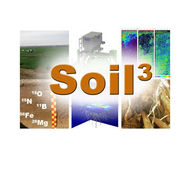The ‘Invisible’ Subsoil: An Exploratory View of Societal Acceptance of Subsoil Management in Germany (2018.0)
Frelih-Larsen A., Hinzmann M., Ittner S.
Sustainability, 10 (9), 3006
Abstract
Subsoil, commonly defined as horizons below the working depth of 30 cm, has traditionally received little explicit attention in policy discussions on soils. Recently, however, there has been growing recognition among scientists of the issues of subsoil (re-)compaction and of the role of subsoil as a resource that can offer valuable nutrients and water for plants. Subsoil management could provide an option to sustainably maintain yields in the context of climate change and resource scarcity, and it is a central question in addressing subsoil compaction. Yet how socially acceptable are different methods for subsoil management? Drawing on in-depth interviews with farmers and stakeholders in Germany, we show that biophysical conditions, the timing of operations, economic considerations, and awareness of subsoil functions are key factors in the acceptance of management methods. Views towards methods involving mechanical intervention are more diverse and in some cases more critical because the benefits are not always certain, the costs can outweigh the benefits, and/or because they entail risks for soil structure and functions. Alfalfa cultivation is seen to be beneficial for yields without risks for soil structure and functions; however, economic barriers limit its uptake. Awareness of multiple subsoil functions is associated with more critical views of mechanical interventions.